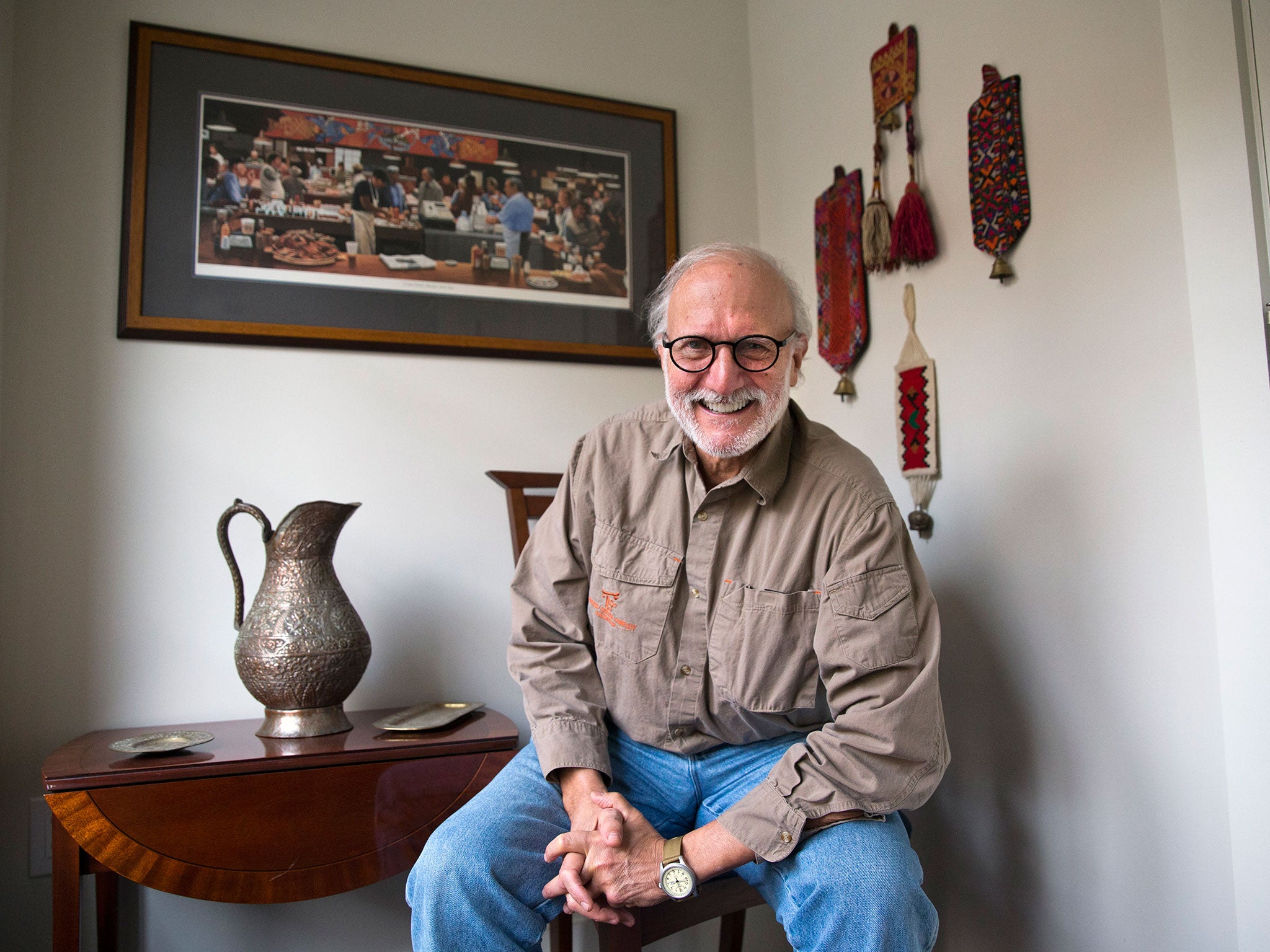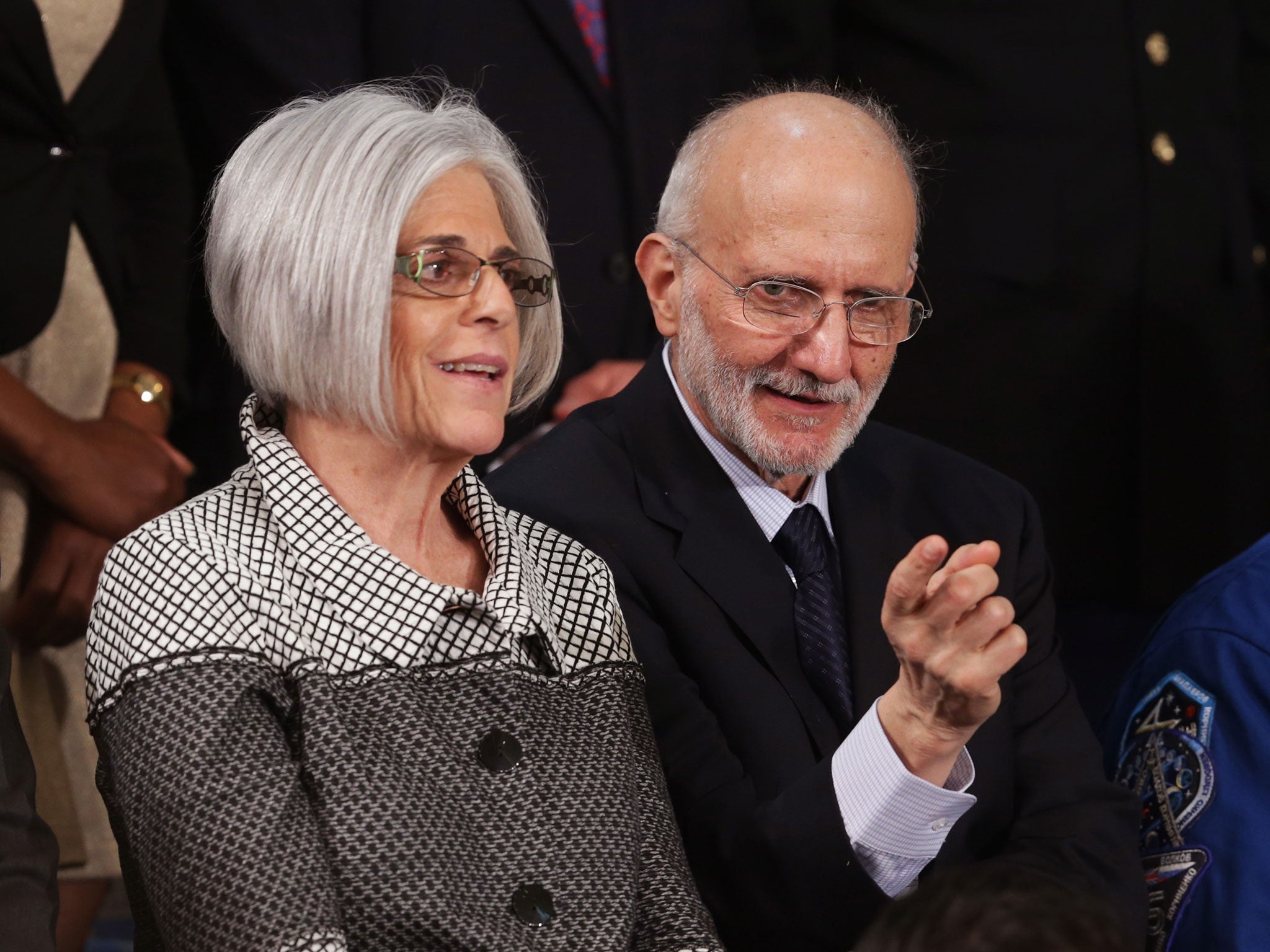Alan Gross interview: US worker imprisoned in Cuba tells why he used humour in the face of torture threats
A year after his release, Alan Gross tells Fenit Nirappil why he is in favour of a normal relationship between the US and Cuba

As a prisoner of the Cuban government for five years, Alan Gross walked 10,000 steps a day to pass the time and preserve his strength.
Now, a year after his release, his daily strolls take him through the “capital of the free world”. The former USAid subcontractor ambles miles from his home in north-west Washington – through the National Zoo and Rock Creek Park, down to the Washington Monument, across the Memorial Bridge and back up 17th Street.
Mr Gross, a development worker, was arrested in 2009 on suspicion of trying to destabilise the Communist regime. He was working in Cuba on behalf of the US government, helping the local Jewish community access the internet.
President Barack Obama announced that Mr Gross had been freed a year ago yesterday, in a deal involving an exchange of prisoners. That day, Mr Obama declared plans to re-establish ties with Cuba after more than 50 years.
“Coming home was just an incredible sense of happiness,” Mr Gross says. “From 3 December 2009, the day I was arrested, my life became a bit surreal, and it still is today.”
When he returned from Cuba, there was no home to return to. Mr Gross’s wife, Judy, had sold the property in Potomac, Maryland, to pay off legal and other bills.
Mr Gross went from low-profile NGO worker to speaking with the president, sitting with the first lady Michelle Obama during the State of the Union Address, dining with former attorney general Eric Holder and visiting Pope Francis in Italy. He routinely fields phone calls from people looking to invest in Cuba.
During five years in a Cuban military hospital and jail cells, Mr Gross shed more than 100 pounds and lost five teeth. His gaunt, gap-toothed appearance made him easily recognisable upon his return.

His introduction to the selfie obsession came, he says, when people stopped him on his walks and asked him to pose for a picture. “Then I got my temporary teeth,” he adds. “And I lost my brand, and so people didn’t recognise me anymore.”
Mr Gross, 66, learned to use Twitter and has an active presence on social media. “The level of anger in this world is unhealthy. Chill,” he posted three times one week. He has expressed support for Democratic causes from unions to Planned Parenthood.
Although he has given dozens of paid, private speeches across the US, he only recently agreed to media interviews. Before, he says, he feared interfering with negotiations with Cuba or causing retaliation against certain other prisoners – all of whom have now been freed. He has written a book about his experience and is looking for a publisher.
Maryland representative Chris Van Hollen, who flew with other politicians and officials to retrieve Mr Gross, said his former constituent is now a valuable advocate for normalising relations with Cuba.
“He’s a great person to take on that cause because he has been the victim of this particular Cuban government,” Mr Van Hollen said. “He knows the problems with this particular regime, but has lent his voice to those who recognise that the best way to improve the condition of the Cuban people is to increase communications and interaction between our two people.”
Mr Gross says he has met members of Congress in both parties to describe his experience. He has not sat down with the loudest critics of Cuba, who have blocked US efforts to roll back trade restrictions and appoint an ambassador to represent the interests of the US in Havana.
Mr Gross says: “I’m angry at what happened. But my sincere interest is to focus more on the next five years than the last five years, and I think that I’ll get over my anger. The clear majority of Cuban Americans are in favour of normalisation, and I think that’s a demonstration that they are getting over their anger. They might have lost everything in Cuba. I lost everything, too.”
He is determinedly upbeat – at times jarringly so – cracking jokes at the darkest parts of his imprisonment. He explains that his jailers threatened to hang him and pull off his fingernails, then quips that he called two seemingly clueless interrogators “Cheech and Chong”, after the 1980s US comedy duo. The reference was lost on his captors.
“When I would laugh, my cellmates would laugh,” Mr Gross says. “Humour is a good coping mechanism.” Since his imprisonment, Cuba has taken steps to cut the price of internet access and set up wi-fi networks in Havana.
Ms Gross is trying to launch an economic and community development consulting business, but he says the accusations levied against him by Cuba still hang over him, limiting his ability to work overseas. He maintains that he did not know that it was illegal under Cuban law for him to be paid by the US to distribute equipment in Cuba – a contention that continues to draw scrutiny.
An investigation uncovered internal reports in which Mr Gross described his work as “very risky” and identified himself as a member of a humanitarian group, instead of someone working on behalf of the US government. “I worked in 54 countries, and we were not aware that there was any particular danger in going to Cuba,” Mr Gross says, his voice growing testy. “Raul Castro admitted to Jimmy Carter that he knew I wasn’t a spy, so we should put that to rest at this point.”
In 2012, Mr Gross filed a lawsuit against the US government and Development Alternatives, the contractor overseeing his project, alleging that they failed to prepare him for a dangerous assignment. The lawsuit against the government was dismissed, and Mr Gross reached a confidential settlement with the contractor. He was also set to receive the bulk of a $3.2m payment from USAid to the contractor, which was the result of a separate claim. Mr Gross and his lawyer declined to provide details.
To mark the first anniversary of his return, Mr Gross plans to travel to Atlanta to visit friends, family and the National Center for Civil and Human Rights.
The toughest part of readjusting to life back in the US, he says, is seeing his weight balloon. He describes his pre-imprisonment body as rotund and, as he continues to enjoy abundant and delicious food, he says he is again at risk of not being able to look down and see his toes. It makes his daily walks through Washington all the more important. Some days, Mr Gross says, when there aren’t too many people around, he takes out a Cuban cigar to enjoy as he strolls.
© The Washington Post
Join our commenting forum
Join thought-provoking conversations, follow other Independent readers and see their replies
Comments